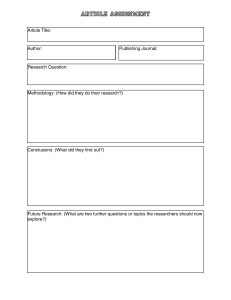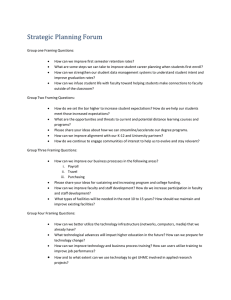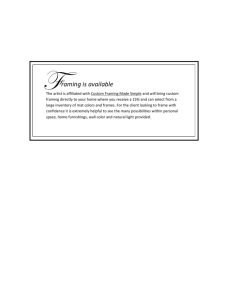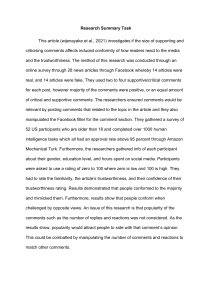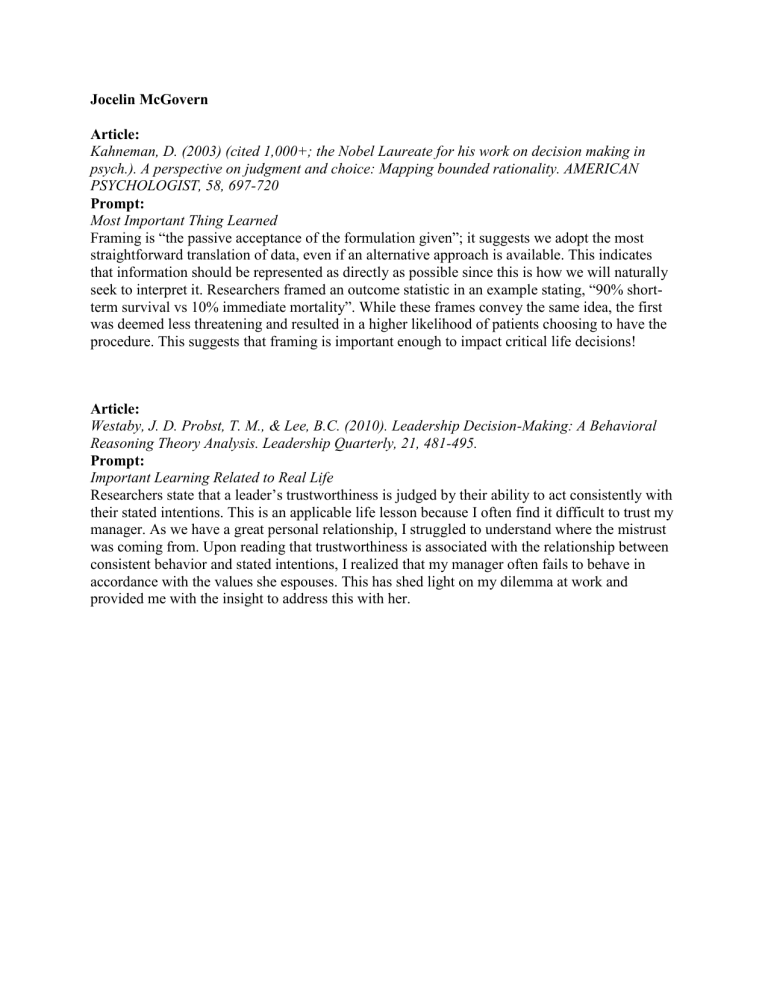
Jocelin McGovern Article: Kahneman, D. (2003) (cited 1,000+; the Nobel Laureate for his work on decision making in psych.). A perspective on judgment and choice: Mapping bounded rationality. AMERICAN PSYCHOLOGIST, 58, 697-720 Prompt: Most Important Thing Learned Framing is “the passive acceptance of the formulation given”; it suggests we adopt the most straightforward translation of data, even if an alternative approach is available. This indicates that information should be represented as directly as possible since this is how we will naturally seek to interpret it. Researchers framed an outcome statistic in an example stating, “90% shortterm survival vs 10% immediate mortality”. While these frames convey the same idea, the first was deemed less threatening and resulted in a higher likelihood of patients choosing to have the procedure. This suggests that framing is important enough to impact critical life decisions! Article: Westaby, J. D. Probst, T. M., & Lee, B.C. (2010). Leadership Decision-Making: A Behavioral Reasoning Theory Analysis. Leadership Quarterly, 21, 481-495. Prompt: Important Learning Related to Real Life Researchers state that a leader’s trustworthiness is judged by their ability to act consistently with their stated intentions. This is an applicable life lesson because I often find it difficult to trust my manager. As we have a great personal relationship, I struggled to understand where the mistrust was coming from. Upon reading that trustworthiness is associated with the relationship between consistent behavior and stated intentions, I realized that my manager often fails to behave in accordance with the values she espouses. This has shed light on my dilemma at work and provided me with the insight to address this with her.
